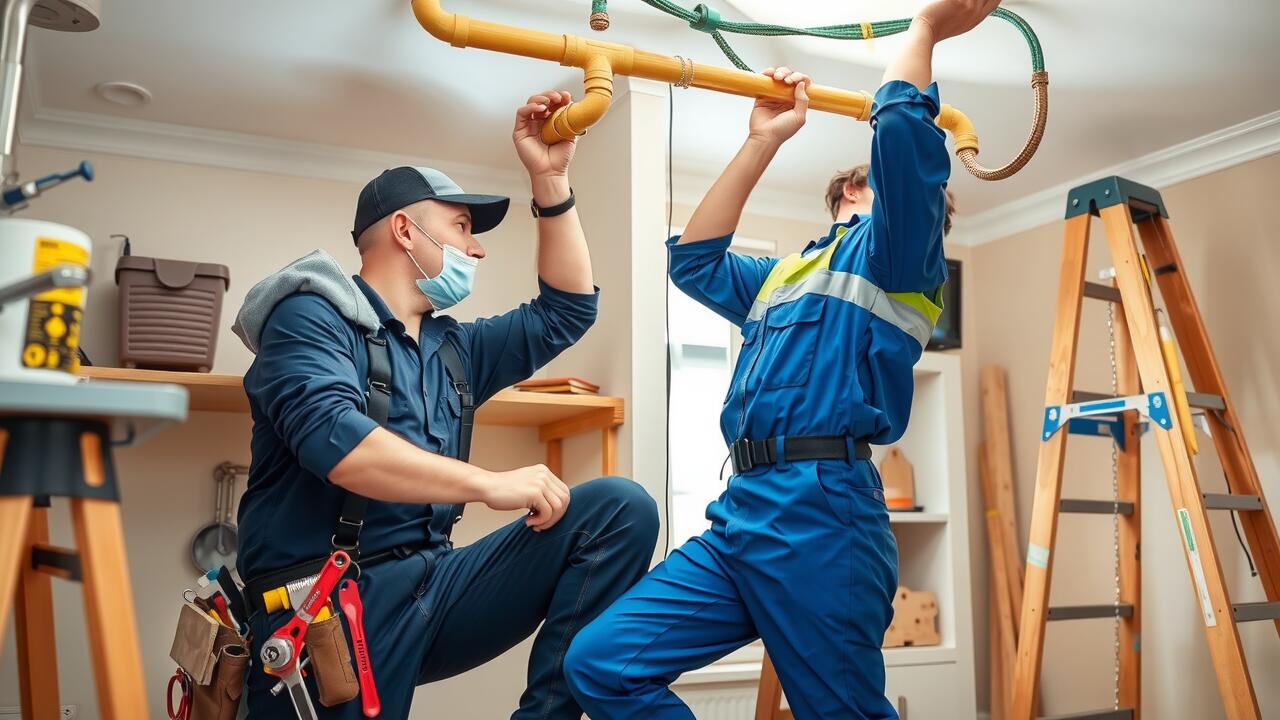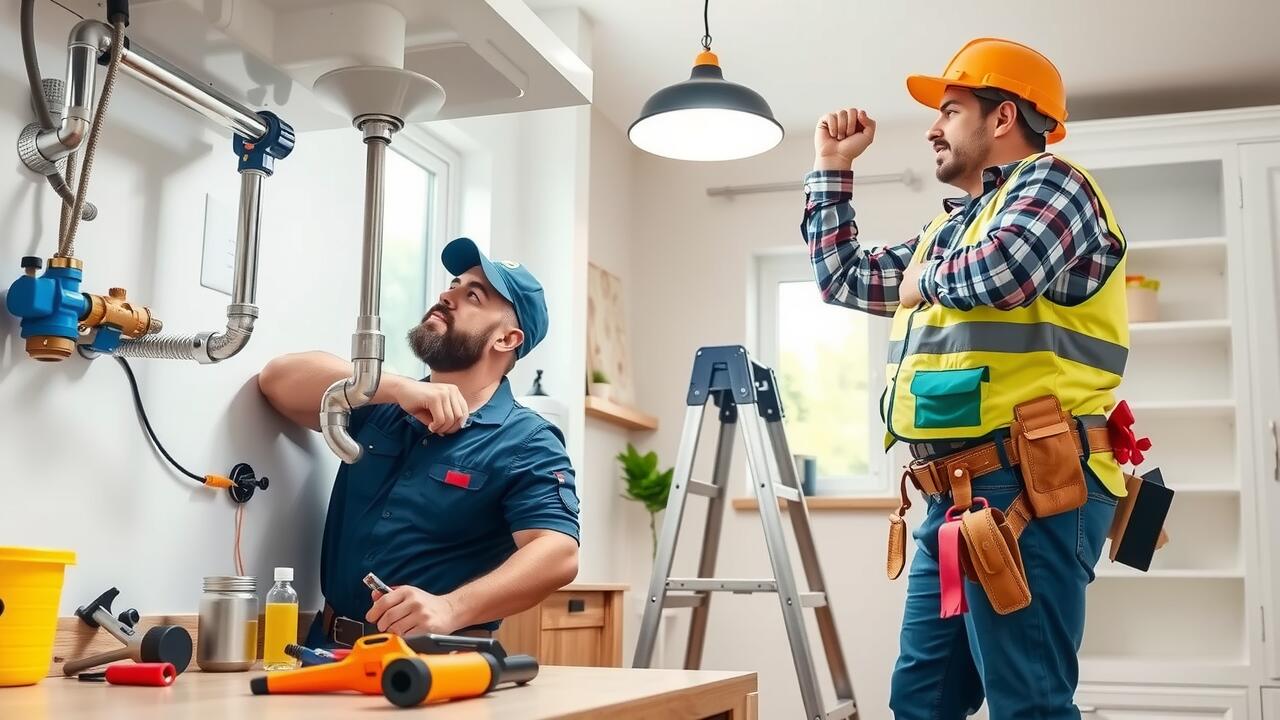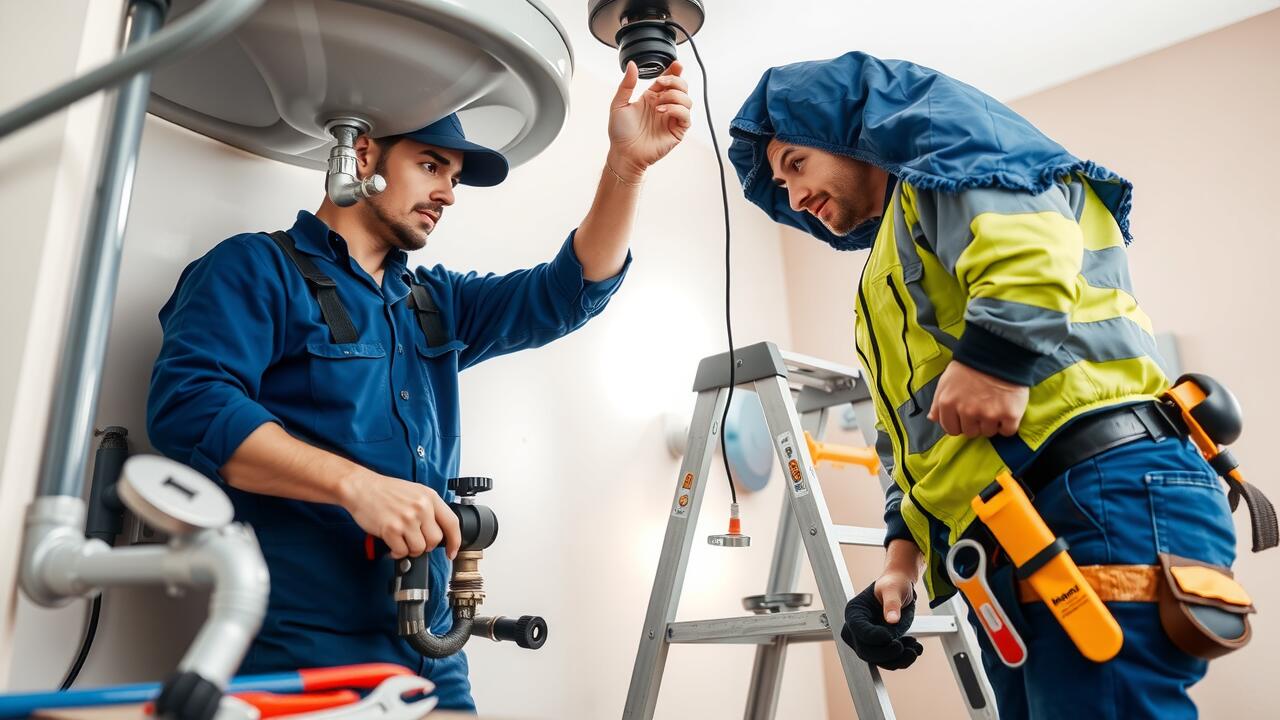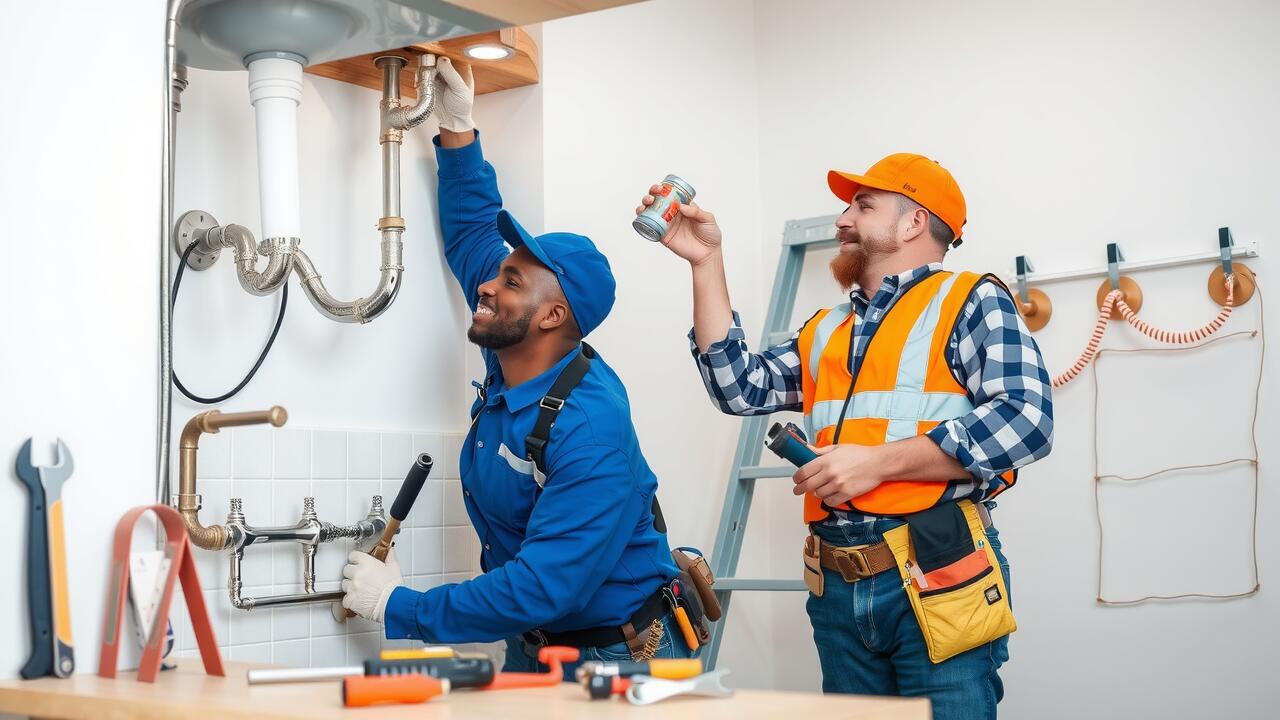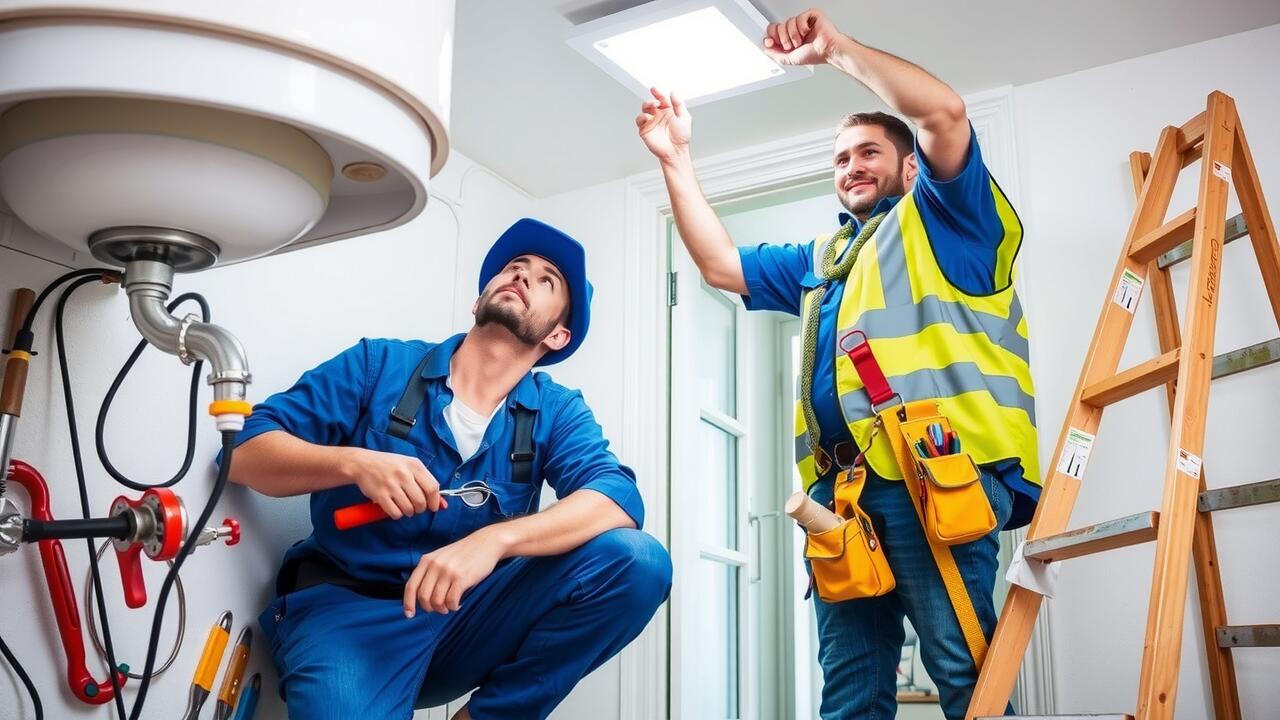
Choosing the Right Appliances
Selecting the right appliances for your bathroom remodel is crucial to creating a space that is both functional and comfortable. Consider your needs and preferences when choosing items such as water heaters, sinks, and toilets. Modern technology offers energy-efficient options that can significantly reduce both water and electricity consumption. This not only helps in lowering utility bills but also contributes positively to the environment.
It is important to invest time in researching and comparing features of different appliances. Look for models that comply with plumbing codes and regulations to ensure safety and effectiveness. A skilled plumber can provide invaluable advice on the installation process and recommend brands known for reliability. Opting for quality appliances may entail a higher initial investment but often results in long-term savings and improved performance.
Energy Efficiency Considerations
When planning a bathroom remodel, energy efficiency should be a key consideration. Incorporating appliances like low-voltage electric showers or natural gas water heaters can significantly reduce energy consumption. Additionally, careful selection of heating systems, such as heat pumps, can help maintain warmth without driving up energy bills, especially during colder months. Exploring options for energy-efficient HVAC systems will also enhance both comfort and savings in the long run.
The choice of materials, including countertops and insulation, plays a pivotal role in energy efficiency. For instance, well-insulated attics can prevent heat loss and contribute to a more stable indoor climate. Investing in ventilation systems that optimise airflow can also mitigate moisture buildup, which might lead to mould or water damage. By focusing on these aspects, homeowners can achieve a balance between functionality and sustainability, ensuring a remodel that is both stylish and economical.
Preparing for a Bathroom Remodel
Embarking on a bathroom remodel requires thorough preparation to ensure the project runs smoothly. Start by gathering all necessary documents that outline your goals for the renovation. These documents should detail your desired layout, aesthetic choices, and specific functionalities you want included. Factors such as dimensions and the placement of plumbing and electrical fixtures must be carefully considered, particularly if you plan on installing new appliances like electric showers or heated towel rails.
Next, consult with professionals who specialise in the mechanical, electrical, and plumbing (MEP) systems essential for a successful remodel. A qualified plumber can provide insights on drainage and valve placement to maximise efficiency. Engaging with electricians ensures that the circuit breakers and switches are properly sized and positioned for optimal safety and accessibility. Creating a cohesive plan that incorporates energy efficiency will not only enhance the functionality of the space but may also lead to long-term savings on utility bills.
Essential Steps in the Planning Process
A successful bathroom remodel begins with careful planning that considers both aesthetic and functional aspects. Key tasks include surveying the existing space to assess structural integrity and plumbing systems. Engaging with professionals, such as surveyors and plumbers, ensures that necessary adjustments to heating, ventilation, and cooling (HVAC) systems are made. It is vital to evaluate the current electrical layout, including socket placements and distribution board configurations, to accommodate new appliances and features while adhering to safety standards.
Next, creating a detailed design using computer-aided design (CAD) tools can help visualise the project. This will encompass decisions regarding the use of energy-efficient lighting, the layout of ducts, and the installation of innovative heating solutions like radiant floor heating or efficient radiators. Proper attention to humidity control measures will prevent moisture-related issues, particularly in confined spaces like basements. Incorporating renewable energy options, such as solar photovoltaic (PV) installations, could further enhance efficiency and reduce long-term energy consumption. Establishing a clear budget with considerations for labour costs, materials, and warranties will streamline the project from start to finish.
The Role of Plumbers in Home Renovations
Plumbers play a vital role in the successful execution of home renovations, particularly in areas like the bathroom where water and waste systems are complex. Their expertise extends beyond mere installation; they must also assess the integration of various systems, such as heat exchangers and pumps. A correct understanding of mains connections ensures that appliances operate safely and efficiently. Their work typically involves the coordination of existing networks within the walls, requiring a solid grasp of building information modelling to plan piping layouts and improve functionality.
In addition to installation, skilled plumbers address essential repairs and upgrades necessary for a modern bathroom. They recognise the importance of thermal resistance and humidity control, integrating insulation materials effectively to enhance energy efficiency. With advancements in technology, elements like smart meters and charging points for electric vehicles may also come into play. By staying updated with modern engineering practices and vocational training, plumbers ensure that renovations meet current building standards while accommodating the evolving needs of homeowners.
Everyday Tasks of a Skilled Plumber
Skilled plumbers carry out a variety of essential tasks that ensure the effective functioning of a home’s water and sanitation systems. They are responsible for installing and maintaining pipes, fixtures, and appliances, ranging from sinks and showers to hot water tanks. Each installation requires careful attention to specifications and adherence to safety standards, especially concerning gas and electrical systems. Knowledge of different materials such as PVC and the ability to navigate subfloors and ceilings are critical. Regular inspections and attention to the condition of existing plumbing ensure long-term reliability and compliance with regulations.
Beyond immediate installations, the role of a plumber extends into troubleshooting and repairs. Identifying leaks or failures in the system is a routine part of their work, often involving detailed analysis of underlying issues. Understanding the varying pressures within pipes and the functionality of drainage systems is vital. The interaction with other trades, such as electricians and builders, is common, particularly during renovations that involve multiple disciplines. Their expertise contributes significantly to successful home improvements, making plumbing an integral aspect of any project.
FAQS
What should I consider when choosing appliances for my home?
When choosing appliances, consider factors such as energy efficiency, size, compatibility with your existing plumbing and electrical systems, and your specific needs. Look for appliances that have a good energy rating to save on utility bills.
How can I ensure the energy efficiency of my appliances?
To ensure energy efficiency, look for appliances that have high energy ratings, check for eco-friendly features, and consider the long-term costs of operation. Additionally, regular maintenance can help keep appliances working efficiently.
What are the essential steps in planning a bathroom remodel?
Essential steps include setting a realistic budget, determining a timeline, choosing a design style, selecting materials and fixtures, and ensuring compliance with local building codes. It's also important to consult with professionals like plumbers and electricians early in the process.
What does a plumber do during a home renovation?
A plumber's role during a home renovation includes assessing and installing plumbing systems, ensuring proper drainage, connecting new fixtures, and maintaining compliance with safety standards. They may also be involved in troubleshooting and repairing existing plumbing issues.
How can I find a skilled plumber for my renovation project?
To find a skilled plumber, seek recommendations from friends or family, check online reviews, and verify qualifications and experience. It's also advisable to request quotes from multiple plumbers to compare services and pricing before making a decision.
